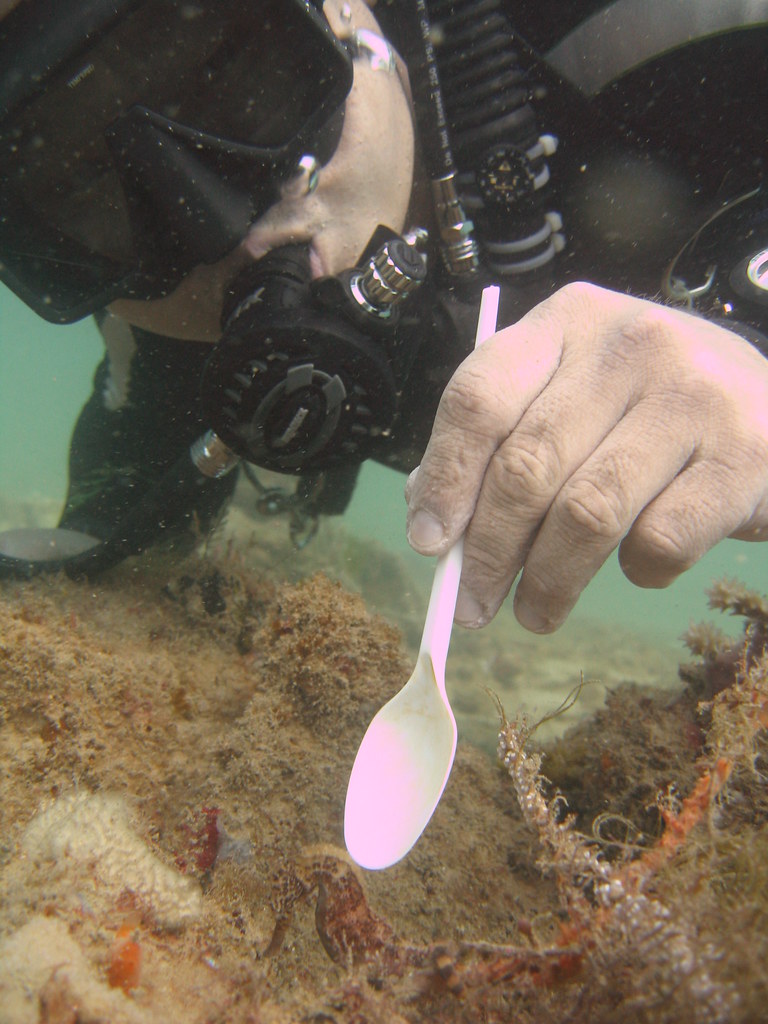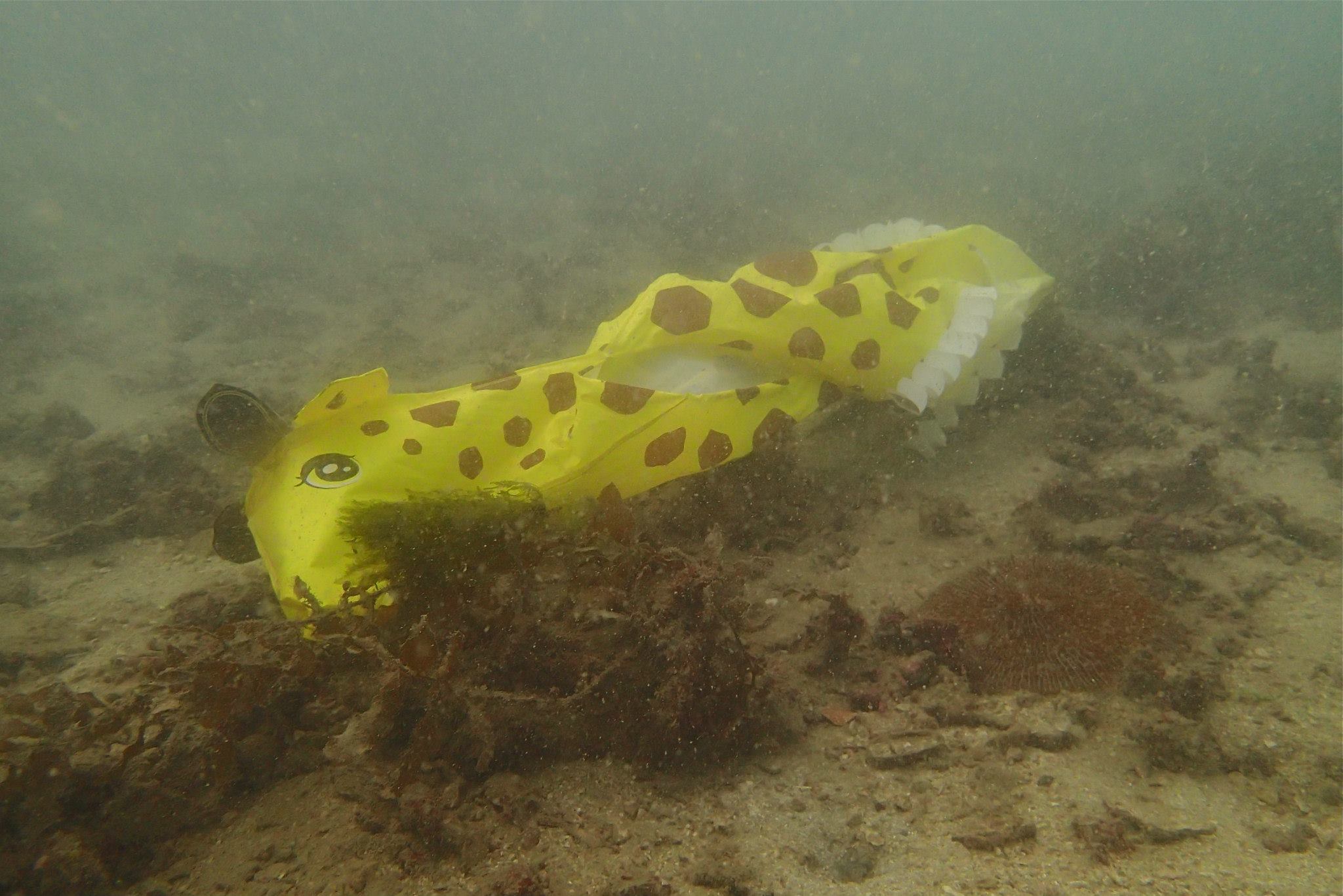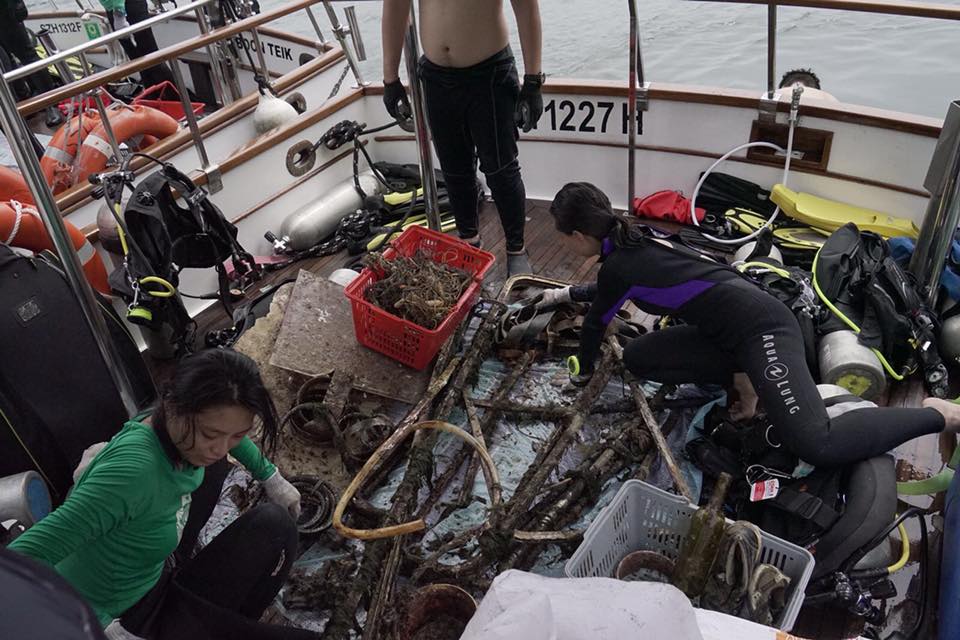World Oceans Day Singapore – A Plastic Nightmare
 June 25, 2018
June 25, 2018
By Aidan Mock: This month we celebrate World Oceans Day! The focus of this year’s World Oceans Day was to inspire action to prevent plastic pollution and encourage solutions for a healthy ocean. In this post, we highlight the scale of plastic pollution in Singapore, feature the activities organised by marine organisations in Singapore to celebrate the special day, and survey the things that we can do to reduce our plastic footprint.
Singapore’s Plastic Problem
Singapore has been notorious for its plastic problem. In 2011, a study conducted by the Singapore Environment Council concluded that Singaporeans used 3 billion plastic bags in that year alone. More recent statistics from the NEA reported that in 2017, Singaporeans produced 760,000 tonnes of plastic waste which accounted for 25% of all the waste produced in the country. That means that each of Singapore’s 5.6 million people in 2017 discarded 135kg of plastic each!
 This wouldn’t be that much of a problem if all of Singapore’s waste was disposed off properly, however as an island city, some plastic inevitably ends in the ocean due to litter being blown into the ocean, litter floating out via drains, or dumping by offshore farms and ships.
This wouldn’t be that much of a problem if all of Singapore’s waste was disposed off properly, however as an island city, some plastic inevitably ends in the ocean due to litter being blown into the ocean, litter floating out via drains, or dumping by offshore farms and ships.

This plastic then drifts through the ocean or settles on the floor. After a while, the plastic starts to break up into smaller beads of plastic known as microplastic. According to the NOAA, plastics do not ever fully degrade in the way that you and I might think of when we think of ‘biodegradables’. Instead they continuously break into smaller pieces of plastic, until they can be broken up no further.

A Tigertail seahorse and a neighbouring plastic spoon that were found on the Hantu reef during the 5th anniversary dive.
An article from the journal Nature noted how plastic can be consumed by marine creatures and, because their guts are filled with plastic that cannot be digested, the creatures eventually starve and die. In 2015, a sperm whale that washed up on Singapore shores had plastic cups and wrappers in its gut (although it is not thought to have starved to death).
Earlier this month, a Pilot Whale that washed up in Thailand was found with 80 plastic bags in its stomach and the plastic bags were thought to have contributed to the creature’s demise. More alarmingly, an NUS research team has found that nanoplastics can accumulate in the bodies of marine organisms. If we then consume the marine organisms, we could also be eating the nanoplastics that have accumulated in the organisms, thereby poisoning ourselves.
Singaporean Initiatives
To commemorate this year’s World Oceans Day, three groups in Singapore organised activities to raise awareness and clean up plastic trash in Singapore. Meshminds, an impact investor and technology advocate, partnered with the SEA Aquarium to introduce visitors to the impact of plastic pollution by using VR technology to bring the issue closer to home. Taking a more hands-on approach, Cuddlefish Divers organised a clean-up dive.
Our Singapore Reefs conducts regular clean-up dives in Singapore and they too held a trash dive in conjunction with World Oceans Day. The team pulled up 126kg of trash from Sisters’ Island over two dives, including a tire, a boat battery, and a large metal frame!
A closer look at the data gathered from the dive reveals that plastic trash was the most common item found on the reef. Fishing line was the most common plastic trash while food wrappers and plastic fragments were the second and third most common plastic trash.
So what can we do?
One of the most effective ways to minimise plastic waste is to cut the pollution off at its source and ban single-use plastics within the country. Many countries are already taking the lead – Taiwan will ban single-use plastic cups, straws, and bags by 2030, the United Kingdom has outlined a plan to ban plastic straws, cotton swabs, and other single-use plastics, and Malaysia plans to ban plastic bags within the year.
While the Singapore government has publicly held off on plastic bag bans, concerned citizens can make their opinions heard on government platform such as Reachgov by commenting on threads or creating new ones. Meeting or emailing your MPs is also a good (and legal!) way to drive political change (don’t know who your MP is? Click here).
Individual action is also important in the plastic battle. Using a metal straw is currently the trendy habit, but bringing your own cutlery, take-away containers, water bottle, or plastic bags when out shopping or eating will also reduce plastic usage.

Ending plastic pollution will help protect our nautical neighbours!
In conclusion
The battle to reduce our plastic consumption is one that will continue to unfold over the next few years and we all have a part to play in it. The health of our oceans is at stake and removing one of the threats to marine life is an appropriate way for us to pay back the ocean for all that it does for us.





 Posted in
Posted in 



 content rss
content rss
COMMENTS